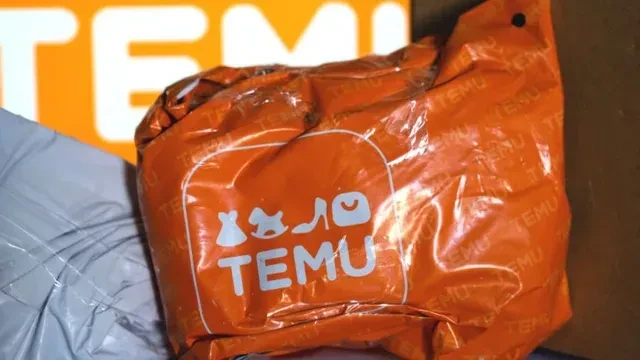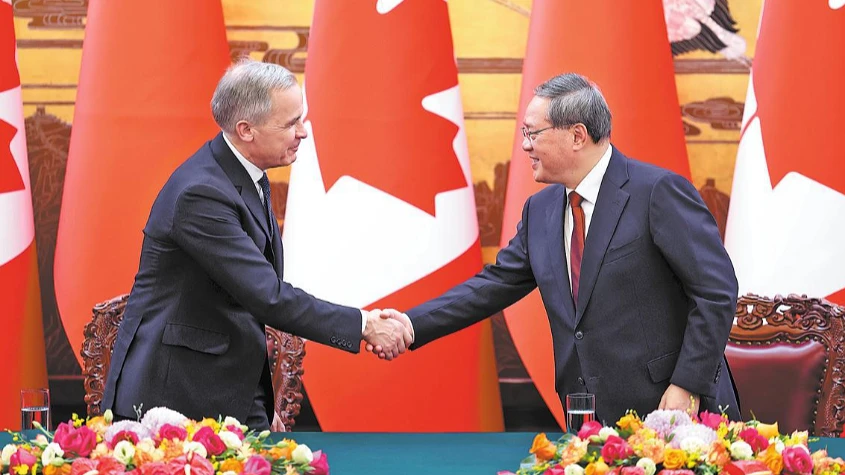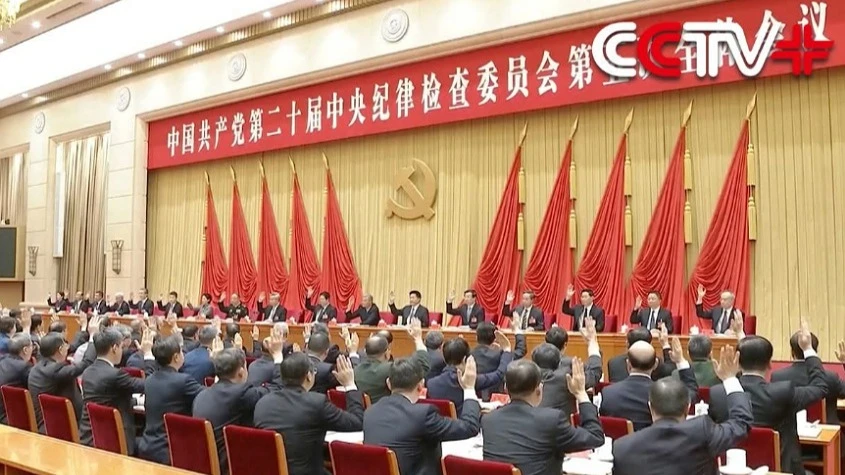Temu owner's shares slump as China slowdown hit sales

PDD Holdings, the Chinese owner of online shopping platforms Temu and Pinduoduo, has reported disappointing sales and profit as Chinese consumers continued to hold back amid an economic slowdown.
US-listed shares of the e-commerce giant fell nearly 11 percent on Thursday following the announcement.
It comes after PDD's main rivals in its home market, Alibaba and JD.com, also posted underwhelming results in the September quarter.
Consumer confidence in China has taken a hit from a crisis in the country's property sector and high levels of youth unemployment.
In the quarter that ended in September, PDD's revenue reached 99.35bn yuan ($13.7bn, £10.9bn), below analyst forecasts of around 102.8bn yuan.
It is the second quarter in a row that PDD misses analyst estimates, after years of fast growth.
“Our topline growth further moderated quarter-on-quarter amid intensified competition and ongoing external challenges,” said Jun Liu, VP of Finance of PDD Holdings.
While PDD's Chinese e-commerce platform, Pinduoduo, has become popular because of its focus on low-cost and heavily discounted products, a growing number of rivals have been adopting similar strategies, triggering a price war.
“China’s retail sector is grappling with headwinds from the broader economic slowdown, with consumer confidence yet to fully recover, ” said James Yang, a partner in retail and consumer products at management consulting firm, Bain & Company.
“Looking ahead, e-commerce growth is expected to continue… albeit at a slower pace.”
"There’s uncertainty on potential tariff change and increasing pushback from more countries related to its 'cheap' prices," said Alicia Yap, an equity research analyst at Citi, before the results were announced.
Last week, Vietnamese authorities said Temu and Shein needed to register with the government before the end of the month or face a ban.
In October, Indonesia ordered Google and Apple to remove Temu from their app stores in a bid to protect the country's own retailers.
The EU has also launched an investigation into whether the Chinese e-commerce platform facilitated the sale of illegal products that could lead to steep fines.
But as well as getting the nation's biggest sporting event, a blockbuster halftime performance and several camera cutaways of Taylor Swift in the crowd, they also got six 30-second commercials for Temu - a Chinese-owned e-commerce company.
The shopping giant has been criticised by politicians in the UK and US - a US government investigation finding an "extremely high risk" that products sold on Temu could have been made with forced labour.
Temu says it "strictly prohibits" the use of forced, penal, or child labour by all its merchants.
The company, which sells everything from clothes to electronics and furniture, first launched in the US in 2022 and later in the UK and the rest of the world.
Since then, it has consistently topped global app download charts, with just under 152 million Americans using it every month, according to data gathered by analyst SimilarWeb.
It's "Amazon on steroids," says retail analyst Neil Saunders, and with the tagline "shop like a billionaire" it has exploded in popularity, shipping to around 50 countries worldwide.
A typical 30-second Super Bowl commercial costs around $7m (£5.5m), during this year's event Temu had six of them.
"It's a lot of money for a very, short commercial," Mr Saunders says.
"But it is seen by an enormous number of people and we know that after that commercial Temu's downloads spiked," he adds.
SimilarWeb data suggests individual visitors to the platform worldwide were up by nearly a quarter on the day of the Super Bowl compared with the previous Sunday, with 8.2 million people browsing the website and app. In the same period, Amazon and Ebay's visitors were down by 5 percent and 2 percent respectively.
"They've also spent a lot of money on micro-marketing, persuading influencers to push products and to suggest buying things on the platform via social channels like TikTok and YouTube," says Mr Saunders.
These influencers typically have fewer than 10,000 followers according to Ines Durand, an e-commerce expert at SimilarWeb.
"Micro-influencers have strong communities, so their endorsement means a strong trust towards these products," she explains.
Temu is owned by Chinese giant PDD Holdings - "a monster in Chinese e-commerce," according to Shaun Rein, founder of the China Market Research Group.
"Throughout China, everyone buys products on Pinduoduo, from speakers to t-shirts or socks," he says.
The company consistently trades places with rival Alibaba for the top spot of most valuable Chinese firm listed on a US stock exchange. Its current worth sits at just under $150bn (£117bn).
With the Chinese consumer market under its spell, PDD Holdings expanded overseas with Temu, using the same model that had ensured its previous success. According to Mr Rein, who is based in Shanghai, the firm has become a great source of pride and patriotism.
"They're proud that Chinese companies can slay the e-commerce dragons from the United States like Amazon," he adds.
A quick scroll through the Temu app or website will bring up anything from steel-toecap trainers to a device designed to help the elderly and pregnant women put on socks. A menagerie of manufactured goods, almost entirely produced in factories in China, Mr Rein explains.
"Temu use an amazing, system that relies on, heavy data collection at scale," says Ines Durand.
"They collect data on consumer trends, the most searched and clicked products, which they give to individual manufacturers."
Ms Durand says that while Amazon sells this data to manufacturers at a premium, Temu gives it to producers free of charge - information they use to "test the market" with a relatively small number of products.
A third of parcels that came into the US last year under a shipping loophole known as the de minimis threshold were from Temu and competitor Shein, according to a report from US Congress.
Many countries - including the UK and USA have a de minimis threshold, designed to help citizens to import goods.
So as Temu's goods are shipped directly from the factory floors, cutting out the middlemen, they become essentially duty-free.
More regulation may be on the horizon to close up shipping loopholes, however, according to Mickey Diaz, chief operating officer at global freight company Unique Logistics.
"The UK has already started to look at Temu with some scrutiny, including the sale of weapons that are otherwise not allowed into the UK, which were being imported because of these loopholes," she explains.
Temu has been criticised for its supply chains too, with UK and US politicians accusing the e-commerce giant of allowing goods produced with forced labour to be sold on its site.
Top Headlines
© 2026 IPPMEDIA.COM. ALL RIGHTS RESERVED

























